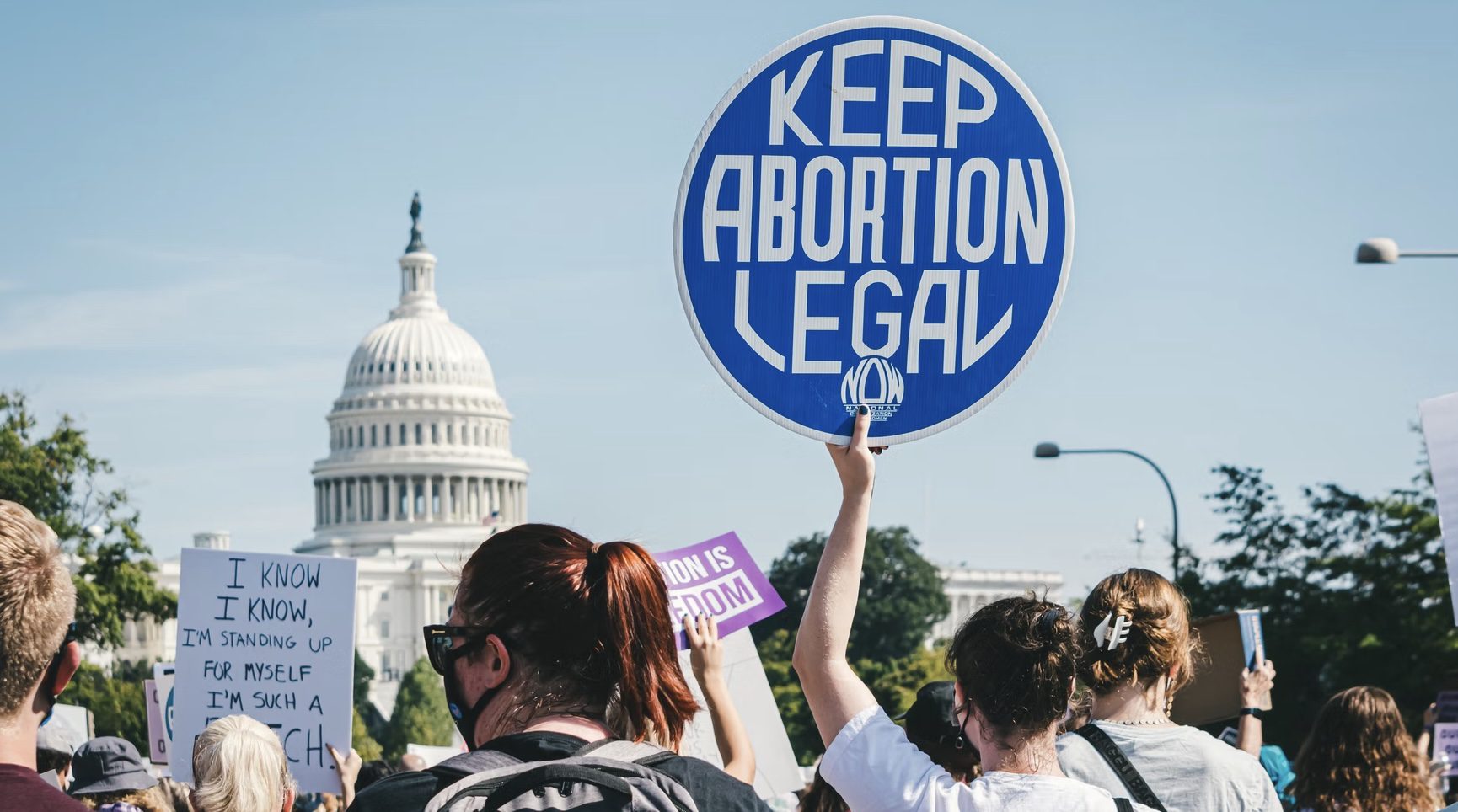
Should the nation’s highest court overturn Roe vs. Wade, supporters and opponents of abortion rights will need to shift their focus to the state level. The issue will become a matter of state legislation, and the battleground will no longer rest in the nation’s Capital.
Many states have either passed or proposed new laws that will significantly change the access and rights of those seeking to end a pregnancy.
Here is a closer look at the current state laws governing abortion.
ALABAMA:
The state codified HB237, requiring providers to “preserve the life of a child who is born alive” after an abortion or attempted abortion, and granting the “same rights, powers, and privileges” given to “any other child born alive at any location in this state.”
TRENDING: SHOCKING UPDATE: JUDGE IN SDNY ‘WE BUILD THE WALL’ CASE DOXES JUROR WHO CALLED CASE “A WITCH HUNT”
ALASKA:
The state passed HB69, which includes a ban on using Medicaid funds to pay for an abortion except in rape, incest, or if a pregnant person’s life is endangered.
ARIZONA:
The state enacted SB1457, which bans abortions due to genetic abnormalities. The bill bans mail delivery of abortion-inducing medication and restricts organizations that provide abortion care from receiving state funds.
ARKANSAS:
The state passed SB6, the Arkansas Unborn Child Protection Act, a near-total abortion ban. The bill bans all abortions, including in the case of rape or incest, with the only exception being if the woman’s life is endangered. The state passed HB1195, mandating that pregnancy support programs be available to people seeking abortion care. The state also approved SB85, requiring that individuals seeking an abortion receive an ultrasound with the image displayed and a simultaneous verbal description of the fetus from the provider. Finally, the state passed SB289, which created a refusal clause for providers for any health care services based on their religious, ethical, or moral beliefs.
COLORADO:
The state has passed the Reproductive Health Equity Act protecting the right to have an abortion, and it blocks public entities from denying or restricting that right. The state also passed SB142, making public funds such as Medicaid available for abortion services.
CONNECTICUT:
The state passed SB835, prohibiting “deceptive advertising” about abortions by crisis pregnancy centers.
HAWAII:
The state passed HB576, which allows nurses and qualified medical professionals to perform abortions.
IDAHO:
That state has enacted HB366, mandating that physicians check for a fetal heartbeat and banning abortion if a heartbeat is detected, except in the case of a medical emergency. The state also allows family members of what the bill calls a “preborn child” to sue the provider for at least $20,000 for performing the procedure.
INDIANA:
The state passed HB177, requiring providers to tell patients about the possibility of discontinuing medication-induced abortions after they are initiated.
KANSAS:
The state is set to consider HCR 5003, which would amend the state’s constitution by affirming that there is no constitutional right to abortion or government funding for abortion.
KENTUCKY:
The state passed a recent law that bans abortions after 15 weeks of pregnancy, restricts minors’ access to the procedure, and cracks down on medication abortions.
LOUISIANA:
The state passed HB578, which requires providers to inform patients about the potential for a medication-induced abortion “reversal.” It also passed HB357, which says that minors may only petition a judge for an abortion without a parent’s consent within their local jurisdiction.
MONTANA:
The state has enacted HB136, which bans abortion starting at 20 weeks. It passed HB140, which requires doctors to offer patients an opportunity to view an ultrasound and hear a fetal heartbeat before an abortion. It has also passed HB171, which added regulation to how medication-induced abortions can be administered.
MISSISSIPPI:
The state passed the Mississippi’s Gestational Age Act, which passed in 2018 but was blocked by two federal courts. The law bans abortions after 15 weeks of pregnancy and has no exception for victims of rape or incest.
NEW HAMPSHIRE:
The state passed measures that include an abortion ban after 24 weeks, except in the case of a medical emergency.
NEW MEXICO:
The state passed SB10, rescinding abortion restrictions in the state that predate Roe v. Wade, including criminal penalties for certain abortions.
OHIO:
The state passed SB260, which prohibits using telemedicine for medication-induced abortions, requiring patients to take an initial dose of any drug in the presence of a physician.
OKLAHOMA:
The state passed SB216, ending abortion access immediately if the U.S. Supreme Court overturned Roe v. Wade. The state also passed HB2441, which requires physicians to check for a fetal heartbeat, banning abortions if a heartbeat is detected except in the case of physical risk for the pregnant woman.
SOUTH CAROLINA:
The state has passed an abortion ban (SB1) when a fetal heartbeat is detectable.
SOUTH DAKOTA:
The state has passed HB1051, requiring physicians to extend the same medical treatments they would use to preserve a child’s life to “every child born alive immediately following an abortion or an attempted abortion.” The state has also passed HB1110, prohibiting abortion based on a fetus’ Down syndrome diagnosis or potential diagnosis, except when the mother’s life is in danger. Additionally, it passed HB1130, mandating that abortion providers tell patients about the possibility of discontinuing medication-induced abortion after it has been initiated.
TEXAS:
The state has passed SB8, banning abortion as early as six weeks. The bill allows private citizens to sue people who aid women in getting abortions. The state also passed HB1280, a “trigger” bill that would ban abortion if the Supreme Court overturned Roe v. Wade.
VIRGINIA:
The state passed SB1276 and HB1896, which removed the state’s abortion coverage ban within some state health insurance plans.
WASHINGTON:
The state enacted HB1009, requiring college student health care coverage that would provide “coverage to permit the abortion of a pregnancy.”
WEST VIRGINIA:
The state passed HB2982, which requires counseling about the possibility of “reversing” a medication-induced abortion.
WYOMING:
The state passed the Born Alive Infant-Means of Care bill, requiring physicians and providers to treat any “viable infant aborted alive” with the same care as any other infant. The state also passed SB92, a “trigger” bill that would ban abortions entirely within five days if the Supreme Court reverses Roe vs. Wade.



























































